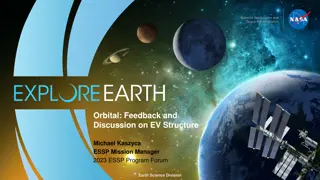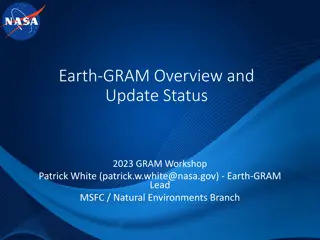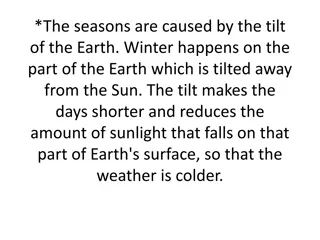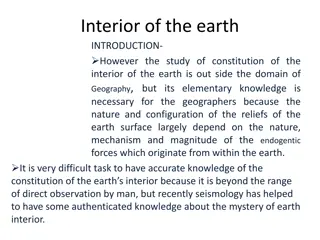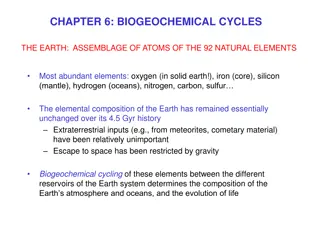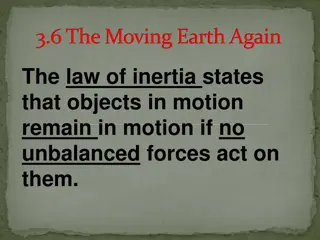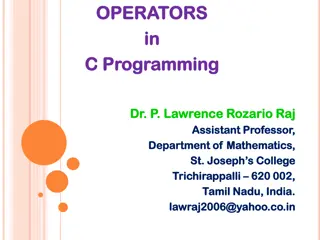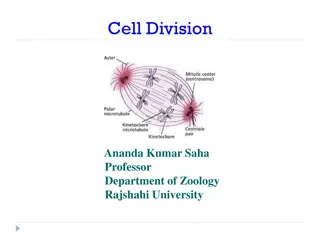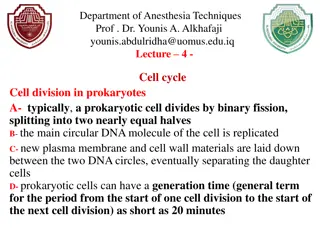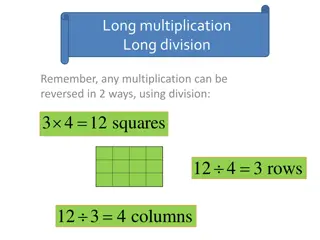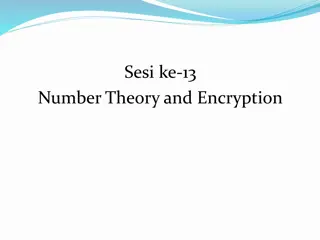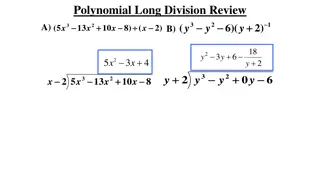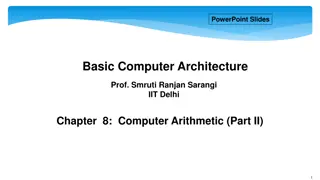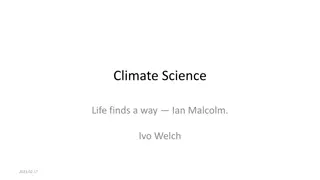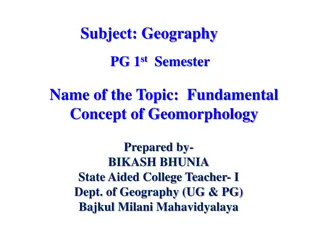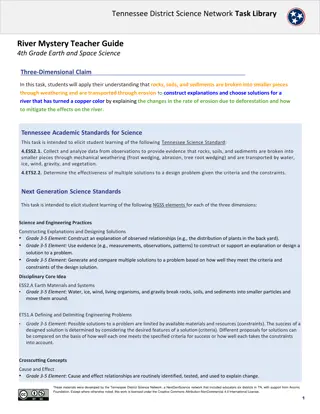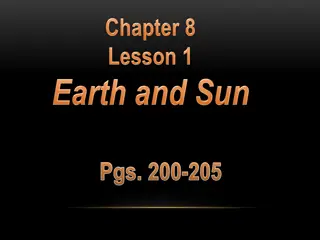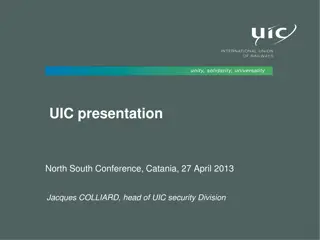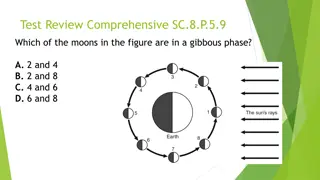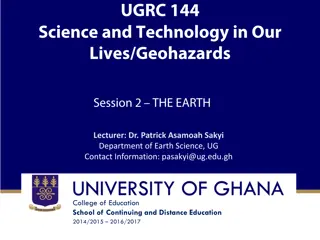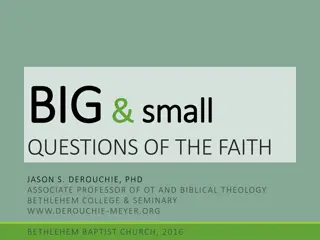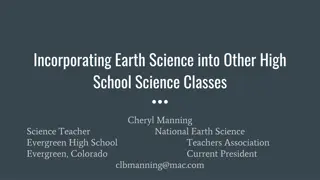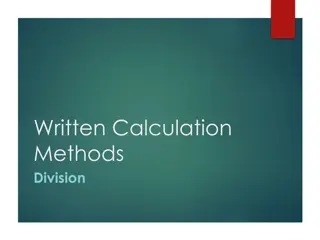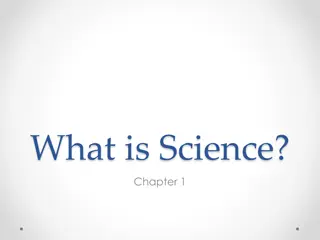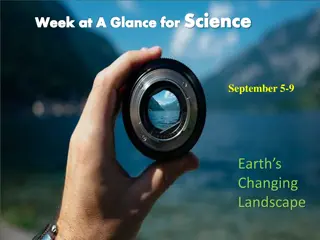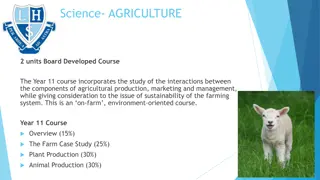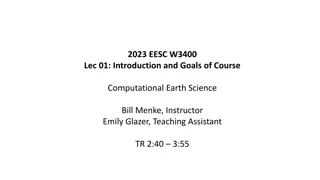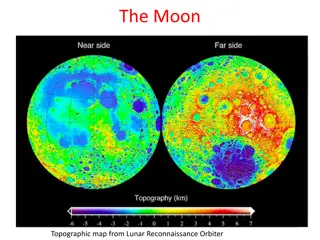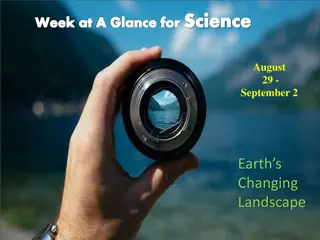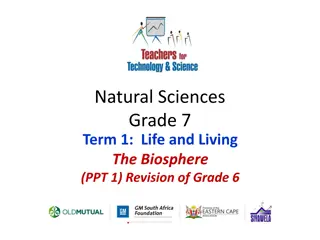SINGLE DISCONNECTING LINK EARTH BAR
Nexus Metal & Alloys is one of the leading manufacturers, exporters, and suppliers of world-class Copper Single Disconnecting Link Earth Bar, Six Way Earth Bar with Single Disconnecting Link, Copper Single Disconnecting Earth Bar at very cheap rate from Mumbai, Maharashtra, India.
4 views • 4 slides
SOLID COPPER EARTH ROD
Nexus Metal & Alloys is a leading manufacturer, exporter and supplier of Solid Copper Earth Rod, Solid Copper Bonded Rod, Solid Copper Earth Rod Lightning Protection Accessories, Pure Copper Bonded Rod, Electrolytic Copper Earth Rod, Solid copper rods, Solid Copper Earth Bars, Solid copper ground el
4 views • 3 slides
Science Week at a Glance: Water in Earth's Processes
This week in science class, students will be focusing on the role of water in Earth's processes, specifically waves, currents, and tides. The curriculum includes analyzing and interpreting data, creating graphic representations, and exploring the causes and effects of these natural phenomena. Studen
3 views • 37 slides
Science Week at a Glance: Water in Earth's Processes
This week in Science class, students will focus on the significant role of water in Earth's processes, specifically exploring where water is located on Earth's surface and understanding the various stages of the water cycle. Each day will involve activities, discussions, and investigations related t
7 views • 13 slides
Understanding Earth's Interior through Seismic Waves: Part 1
Seismic waves provide crucial evidence about Earth's composition and structure. By analyzing the behavior of primary, secondary, and surface waves, scientists can determine the different layers and materials within the Earth. Primary waves travel through both solid and liquid parts, while secondary
10 views • 10 slides
Science Week at a Glance: Water in Earth's Processes
Explore a week focused on water in Earth's processes, covering topics such as the water cycle and the role of the sun's energy. Activities include investigations, understanding the significance of water in Earth's processes, and locating water on Earth's surface. Engage in creating water cycle puzzl
7 views • 15 slides
The History of the Earth
The Earth, 4.5 billion years old, emerged from a nebula in the Milky Way Galaxy. Gravity led to the condensation of a rotating cloud into the Sun and planets. Over time, lumps collided, forming gas giants, rocky planets, and asteroids. The outer planets attracted hydrogen and helium, while the inner
2 views • 45 slides
B.Sc (Arts) Courses and Colleges List for Science Students
If you\u2019re a 12th-grade student exploring undergraduate options in the B.sc science stream, consider the following list of recommended courses and colleges\nThe list of courses and colleges for the Science stream:\n1. B.sc (CS)\nThe BSc Computer Science, or BSc CS, is a 3-year undergraduate prog
9 views • 5 slides
Standard Earth Bar - Nexus Copper Pvt. Ltd
Nexus Metal & Alloys is one of the leading manufacturers, exporters, and suppliers of world-class Standard Earth Bar, Surge Protection Earthing Links, Lightning Protection Earth Bars, Copper Cladded Mats, Copper Earth Bars, and Copper Earthing Bars at very cheap rates from Mumbai, Maharashtra, India
3 views • 4 slides
Future of NASA's Earth Venture Program
Recent feedback and discussions within NASA's Earth Science Division have revolved around potentially merging EV Mission and EV Instrument efforts, aiming to streamline the mission architecture process. This proposal aligns with past recommendations to emphasize cost-effective, innovative missions o
0 views • 10 slides
Earth-GRAM Overview and Updates 2023
Earth-GRAM is a global reference atmospheric model providing monthly mean and standard deviation data for various atmospheric variables. It is used in engineering for dispersion simulations but is not a forecasting model. Updates to Earth-GRAM include the Modern Era Retrospective Analysis, a global
0 views • 19 slides
Explaining the Earth's Tilt and Seasonal Changes
The Earth's tilt causes seasonal changes, leading to winter in the hemisphere tilted away from the Sun, resulting in colder weather due to reduced sunlight. Understanding the tilt helps explain why seasons vary across different parts of the same hemisphere, impacting temperatures and daylight length
1 views • 10 slides
Understanding the Composition of Earth's Interior: Insights from Density, Pressure, and Temperature
The constitution of the Earth's interior plays a crucial role in shaping the surface features we observe. Although direct observation is challenging, seismic studies offer valuable insights. The density, pressure, and temperature within the Earth provide essential clues to its composition. Rocks' de
0 views • 14 slides
Insights into Biogeochemical Cycles and Evolutionary History of Earth
The Earth's elemental composition has remained constant over its 4.5 billion-year history, with biogeochemical cycles playing a vital role in shaping the atmosphere and oceans. The evolution of oxygen, ozone, and life on Earth is intricately linked to these cycles. Contrasting Earth and Venus, it's
0 views • 15 slides
Understanding Inertia and Motion in the Moving Earth
Inertia and motion in a moving Earth debunk the argument against Earth's movement using examples of birds catching worms on trees and flipping coins in moving vehicles. Objects on Earth move with Earth's motion, showcasing the principle of inertia in action.
2 views • 7 slides
Understanding Arithmetic Operators in C Programming
C programming language provides various arithmetic operators such as addition, subtraction, multiplication, division, and modulo division. Integer division truncates any fractional part, while modulo division produces the remainder of an integer division. When operands in an arithmetic expression ar
1 views • 18 slides
Free Science Education Resources at Science Prof Online (SPO)
Science Prof Online (SPO) is a comprehensive science education website offering Virtual Science Classrooms, science-related PowerPoints, articles, and images for students, educators, and anyone interested in science. The site provides various educational resources, including practice test questions,
0 views • 16 slides
Understanding Cell Division: Processes and Types
Cell division is a vital process in living cells for growth and reproduction. This article explores the basics of cell division, including the cell cycle, types of cell division (such as mitosis and meiosis), and the initiation of cell division. It also covers key phases like interphase and provides
0 views • 20 slides
Overview of Cell Division in Prokaryotes and Eukaryotic Cells
Cell division plays a crucial role in the growth and reproduction of all organisms. In prokaryotic cells, binary fission is the primary mode of division, while eukaryotic cells undergo a more complex process involving cell growth, DNA replication, chromosome distribution, and cytokinesis. The cell c
0 views • 10 slides
Illustrated Methods of Multiplication and Division
The content explains various methods of multiplication and division, including long multiplication, lattice method, and short division, with detailed examples and visual aids. It covers concepts like reversing multiplication through division, using single-digit multiples, and step-by-step division t
1 views • 16 slides
Basics of Division in Number Theory and Encryption
Understanding arithmetic operations for discrete numbers is crucial in the world of Number Theory and Encryption. This session covers the fundamentals of addition, subtraction, multiplication, and division, emphasizing key terms like dividend, numerator, divisor, quotient, remainder, and fraction. T
0 views • 7 slides
Polynomial Long Division Review and Practice
This content provides a detailed review on polynomial long division including step-by-step instructions, examples, and synthetic division practice problems. It covers topics such as descending polynomial order, solving binomial divisors, writing coefficients, determining remainders, and obtaining fi
0 views • 4 slides
Computer Arithmetic in Basic Computer Architecture
This presentation delves into the realm of computer arithmetic in basic computer architecture, covering essential topics such as addition, multiplication, division, and floating-point operations. The slides illustrate techniques for integer division and the reduction of division problems, along with
0 views • 58 slides
Unveiling Climate Science: Understanding Earth's History and Future
Delve into the intricate world of climate science as we explore the fundamental principles of climate vs. weather, extreme temperature events, the greenhouse effect, GHG balance, and the impact of GHGs on Earth and other planets. Discover how Earth's past informs our understanding of the deep time s
0 views • 54 slides
Fundamental Concepts of Geomorphology: Exploring Earth Forms and Evolution
Geomorphology, derived from Greek roots for earth and study, focuses on the origin and evolution of Earth's surface features. Geomorphologists study landforms above sea level and the interface between solid Earth, Hydrosphere, atmosphere, and Lithosphere. The fundamental concepts of geomorphology in
0 views • 12 slides
River Mystery Teacher Guide for 4th Grade Earth Science Task
Students will analyze the impact of deforestation on a river turning copper-colored due to changes in erosion rates. They will apply knowledge of rocks, soils, and sediments in constructing explanations and solutions. This task aligns with Tennessee Academic Standards for Science and Next Generation
0 views • 7 slides
Understanding Day, Night, and Seasons on Earth
Earth's rotation on its axis causes day and night, with the Sun appearing to rise in the east and set in the west. The movement of stars, Moon, and planets across the sky each night is due to Earth's rotation as shadows change in length throughout the day. Seasons result from Earth's revolution arou
0 views • 20 slides
UIC Security Division Overview and International Activities
The UIC Security Division plays a crucial role in supporting the security platform of the International Union of Railways (UIC). Headed by Jacques Colliard, the division is based in Paris and consists of key personnel like Marie-Hélène Bonneau, Jos Pires, and Laetitia Granger. The division's activ
0 views • 12 slides
Moon Phases, Observations, and Earth's Tilt Study
Explore questions on moon phases, lunar observations, and Earth's tilt in this comprehensive science review. Answer inquiries on lunar phases, moon appearances, and the Earth's position. Engage in activities to predict moon phases, identify specific moon appearances, and comprehend the relationship
0 views • 19 slides
Understanding Earth Science: Exploring the Solar System and Physical Environment
Delve into the realm of Earth science with Dr. Patrick Asamoah Sakyi to explore topics like the Solar System, Earth's physical environment, and the structure of the Earth's interior. Gain insights into our planet's place in the universe and its dynamic nature throughout geological time.
0 views • 28 slides
Understanding Young Earth Creationism: Biblical Perspectives on the Age of the Earth
Exploring the viewpoint of Young Earth Creationism (YEC) based on biblical arguments, this content delves into the belief that God created the earth in six 24-hour periods, making it exceptionally young by conventional scientific standards. The discussion focuses on the biblical passages and theolog
0 views • 20 slides
Enhancing Science Education Through Earth Science Integration
Explore the importance of incorporating Earth Science into high school Biology, Chemistry, and Physics classes, leveraging resources and NGSS standards to create engaging cross-disciplinary learning experiences. Cheryl Manning, NESTA President, shares insights on bridging Earth Science concepts with
0 views • 13 slides
Year 3 Division Methods and Facts Overview
Explore written calculation methods for division in Year 3, including facts related to times tables such as 2, 3, 4, 5, 8, and 10. Learn about mental division with remainders and progress to dividing numbers up to 4 digits by one- or two-digit numbers using short and long division in Year 4 and 5. D
0 views • 18 slides
Introduction to Science and its Branches
Science is the organized way of gathering and analyzing evidence about the natural world. It encompasses various branches such as Biology, Earth Science, Chemistry, and Physics, each focusing on different aspects of the world around us. Careers in these fields range from doctors and nurses in Biolog
0 views • 25 slides
Science Week at a Glance: Earth's Changing Landscape - September 5-9
Explore the dynamic processes shaping Earth's surface through a week-long science program. Dive into topics like the formation of Earth's surface, rock classification, plate tectonics, mineral characteristics, and fossil evidence of our planet's history. Engage in hands-on activities, discussions, a
0 views • 10 slides
Year 11 Science Courses Overview
Explore a range of Year 11 science courses covering Agriculture, Biology, Chemistry, Earth and Environmental Science, Investigating Science, and Physics. Each course offers a unique focus, from agricultural sustainability to cellular structures, chemical reactions, Earth's origins, scientific proces
0 views • 6 slides
Computational Earth Science Course Overview
Explore the world of Computational Earth Science with Bill Menke as the instructor and Emily Glazer as the teaching assistant. The course aims to help you become proficient in applying Python-based computational methods to understand dynamic Earth Science phenomena. Through modeling, you will gain i
0 views • 34 slides
The Moon: Topographic Features and Formation
The moon, with a radius 0.27 of Earth, orbits the Earth every 27.3 days and is tidally locked with one face always pointing towards Earth. It has a composition similar to Earth's rocks and likely formed from a giant impact. The moon's surface features craters and dark patches called maria, while the
0 views • 13 slides
Exploring Earth's Changing Landscape Through Science
Dive into a week-long study of Earth's surface and composition through the lens of science. From investigating the layers of the Earth to understanding plate tectonics and the rock cycle, students will explore how geological processes shape our planet. Engaging activities such as hands-on experiment
0 views • 10 slides
Exploring the Earth's Biosphere: Grade 7 Science Revision
Delve into the fascinating world of the Earth's biosphere through this Grade 7 Science revision presentation. Topics covered include the Earth's position in the solar system, its unique features such as water coverage and rotation, as well as essential concepts like day and night, Earth's revolution
0 views • 9 slides









